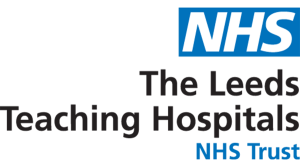Facilitating patient-centric cancer care
aQ is deployed at the University of Leeds and Leeds Teaching Hospitals NHS FT to support cancer research that will lead to improvements in patient care. aQ plays a crucial role in enabling researchers to collect patient reported outcome measures (PROMs) from patients remotely via the aQ mobile App and aQ responsive website. aQ contributes to this research is multiple ways, including:
Real-world data collection: aQ enables routine measurement of PROMs, allowing patients to directly share their experiences and well-being through self-reported symptoms and adverse events. This rich data empowers researchers to understand the true impact of treatments from the patient’s perspective.
Advanced algorithm integration: aQ’s configurable platform allows for the incorporation of complex algorithms, such as the University of Leeds’ own eRAPID algorithm. aQ and eRAPD work seamlessly together so that patients automatically receive bespoke personalised advice following completion of symptom questionnaires.
Collaborations / Partnerships
University of Leeds & Leeds Teaching Hospitals NHS FT




Supporting patients recovering at home from surgery for oesophago-gastric cancer
Following surgery, patients recovering at home can experience a range of symptoms. Current methods of monitoring these symptoms can be limited, making it difficult for healthcare providers to assess recovery and offer timely support.
aQ will be utilised by the University of Bristol’s groundbreaking ROSE study, which investigates the impact of real-time symptom monitoring on patient recovery after surgery for oesophago-gastric cancer.
The research utilises the aQ platform to allow patients to:
Electronically report symptoms: Patients can easily report symptoms through questionnaires, providing valuable insights into their recovery process.
Receive symptom management information: Based on patient-reported data, healthcare providers can offer targeted feedback and support, addressing specific needs more effectively.
The research will assess if patients using aQ have a better recovery from their surgery compared with those having usual care and if this is good value for money for the NHS.
Collaborations / Partnerships
University of Bristol



